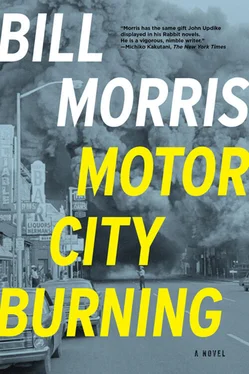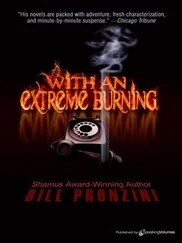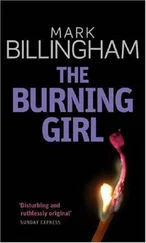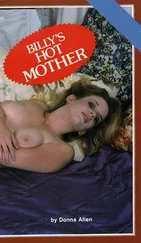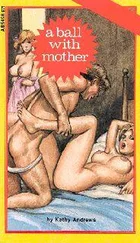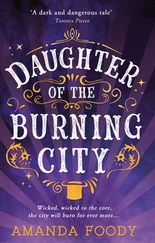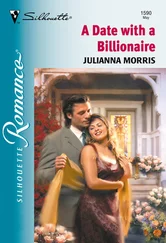“I hate it. Company’s run by white men now — bunch a slave drivers.” She took another deep drag on the cigarette. “I shouldn’t bad-mouth all the white men work there. Joe Messina, he white, eye-talian, plays guitar and just as sweet as he could be. Always buying me presents, telling me how nice I look.”
“Which band’s he with?”
“The house band. They call theirselves the Funk Brothers, but nobody ever heard of ’em.”
“Why not?”
“Cause Berry won’t put they names on any records. I’m tellin you, place is run just like a plantation. They even hired a spy to keep tabs on the musicians after hours, make sure they ain’t breakin they exclusive contracts. Don’t do no good. I know for a fact the Vandellas is singin backup on the new John Lee Hooker record.” Twin tusks of smoke shot from her nostrils. “There’s this brother hangs around the studio, he ain’t like the others. He don’t hit on me or try to get in on the recording sessions. He just likes to hang out and talk. He teaches African history at Cass Tech and he tells me about people I never even heard of — Moise Tshombe, Kwame Nkruma — says every black person in America has a responsibility to know what’s going on in Africa. Shit, I don’t know what’s going on in D-troit half the time. I don’t even read the newspaper. It’s shameful to be so ignorant. I’ve never traveled farther than Chicago, and now on account of Daddy it doesn’t look like I’ll be able to go anywhere for a while.”
“What’s up with your daddy?”
“He’s got the sugar, and it’s gonna kill him. I try to look in on him every day. Sometimes when I meet a brother like you who’s gone places and done things, been to college—”
“I didn’t even finish a year of college.”
“Well, I didn’t even finish high school. But that’s not the point. Point is you had a dream and you put your body on the line. You tried to change the world.”
“I didn’t change shit, Octavia.”
“But you tried.”
“Trying don’t mean a thing.”
“Yes it does! Can’t you see that? Tryin’s all there is — and I ain’t never tried nothin.”
It was near dark now. They were heading south on Woodward and Willie’s euphoria was gone. Listening to her lament reminded him of something Aunt Nezzie had told him: The best listeners are people with the greatest ache to unload their own tales.
Octavia took a right onto Boston Boulevard and slowed down as they passed the biggest houses Willie had seen inside the city limits of Detroit. The biggest one on the block was lit up, and they could hear music pouring out of the open windows — live music, jazz. Elegantly dressed people were milling beneath a blazing chandelier, a mixed crowd, blacks, whites, even a few Asians.
“That’s my boss’s crib,” Octavia said, slowing to a crawl.
“No lie? That’s where Berry Gordy stays?” He turned to get a better look. A woman’s bawdy laughter rolled across the lawn, then the throaty whisper of a saxophone, drums stroked by brushes.
Octavia pulled over to the curb between two mammoth Cadillacs and cut the engine. They both stared at the house. “I went to the company Christmas party here last year,” she said. “Y’ain’t never seen so much marble and gold in all your life.”
The awe in her voice disappointed him. It reminded him of his wide-eyed brother telling him, during the long drive from Alabama to Detroit, that the Temptations’ lead singer had a limo upholstered with mink. Flashy displays of wealth had never impressed Willie.
“There’s a tunnel that runs to a movie theater behind the house,” Octavia went on. “And you’ll never guess what’s on the wall in the living room.”
“I hate to think. Gold records?”
“No, a portrait of Berry — dressed up like Napoleon.”
A Negro Napoleon! It was so sick Willie had to laugh.
“I’m surprised Berry’s even in town,” she said.
“What do you mean?”
“He spends most of his time out in Vegas and L.A.”
“Doing what?”
“Gamblin, playin golf, tryin to figure out a way to break into the movies. All he cares about anymore’s makin Diana Ross into a movie star. He lets his white slave drivers run the company day-to-day.”
This was all news to Willie. The few things he’d read about Motown, mostly in magazines like Jet and Ebony , made the company out to be one big happy prosperous black family.
“The initials H-D-H mean anything to you?” Octavia said as the saxophonist in the house broke into a wailing solo. People were whooping, urging him on.
“Sorry.”
“How bout Holland-Dozier-Holland?”
At last they were getting back to Clyde. “Is that the name of Clyde’s law firm?”
She laughed, shaking her head. “I forget you from down South. You still got a lot to learn.”
Coming from her, the put-down carried a frightful sting. It was one thing for Clyde Holland to cluck his tongue, as he’d done on Opening Day at Tiger Stadium, and let Willie know that his busboy job branded him a hopeless chump. But it was something else for this woman to tell him he still had a lot to learn. He could feel his hurt shading instantly toward anger. “So what’s Holland-Dozier-Holland?”
“You heard of the Four Tops? Or the Supremes?”
“Of course.” God damn.
“Eddie Holland, Lamont Dozier and Brian Holland’s the team wrote most of they hits—‘Bernadette,’ ‘Standing in the Shadows of Love,’ ‘Can’t Hurry Love,’ ‘I Hear a Symphony’—hundreds a songs.”
Now Willie was remembering how Louis Dumars had introduced Clyde on Opening Day — as the famous barrister with the even more famous brothers. “So Eddie and Brian are Clyde’s brothers?”
“Now you catchin on. Thas how I got my job, through Clyde. But he’s more than just they brother. He they lawyer too. Motown just sued H-D-H for four million dollars.”
“Why?”
“Claim they breached they contract cause they haven’t written no songs since last year. Can you imagine that? After all the money they done made for the company? Now Clyde’s fixin to counter-sue the company for twenty-two million. And Eddie and Brian’s gonna start they own record label, gonna call it Hot Wax.”
There it was again, Willie thought, the oldest story in the book: black people sticking each other instead of sticking together and fighting the actual enemy. So much for the big happy Motown family.
A car pulled up alongside the Austin-Healey. A radio crackled and a man’s voice said, “You comin, goin, or just gawkin?”
Octavia and Willie looked to their left. It was a blue-and-white Detroit police car. The cop behind the wheel was black; the white cop in the passenger seat was wearing a big phony smile. He had bad teeth and bad skin.
Then it hit Willie like a fist: it was the same cop who’d stopped him right after he and Wes unloaded the last of the guns on that Vietnam vet, Kindu.
Within seconds of pulling away from Kindu’s apartment, Willie had seen the red light in his rearview mirror. His first feeling was relief — at least the Buick’s trunk was empty. But even as he pulled over to the curb, his relief melted. What if the cops had seen him come out of Kindu’s apartment building? Wes was still in there with a big bag of reefer, all that cash, and those AK-47s.
In his Buick’s sideview mirror Willie had watched the cop approaching. Big white sonofabitch with a beer gut and a rolling swagger, thumbs hooked on his belt, eyes moving like ball bearings from the car to the street and back to the car. Willie had his driver’s license out before the cop’s face filled the window.
“License and registration,” the cop had said. His fleshy lips were parted in a smile that carried no warmth. His teeth were yellow. He was so close Willie could smell him — coffee and greasy food on his breath, hair tonic, gun oil. It was a mechanical smell, not even human.
Читать дальше
